Professor of Management, Vanderbilt University Owen Graduate School of Management
H.R.1., passed this past summer, eliminates tax credit overpayment safe harbors for advance credits that end up too large relative to realized income the individual has during the coverage year
www.wsj.com/politics/pol...

H.R.1., passed this past summer, eliminates tax credit overpayment safe harbors for advance credits that end up too large relative to realized income the individual has during the coverage year
www.wsj.com/politics/pol...
(h/t to coauthor @johngraves.bsky.social)

(h/t to coauthor @johngraves.bsky.social)
They expire 12/31, so that’s a drop dead date.
Open enrollment starts November 1. If they’re not extended by then, enrollees may start dropping out. Even if open enrollment is extended, people could be hard to reach.
They expire 12/31, so that’s a drop dead date.
Open enrollment starts November 1. If they’re not extended by then, enrollees may start dropping out. Even if open enrollment is extended, people could be hard to reach.
The "average" American will spend about five years of their pre-Medicare lives in privately-purchased coverage.
But these are often short spells, where marketplace plans provide a critical "bridge" at key transitional moments in life.
The "average" American will spend about five years of their pre-Medicare lives in privately-purchased coverage.
But these are often short spells, where marketplace plans provide a critical "bridge" at key transitional moments in life.
jamanetwork.com/journals/jam...

jamanetwork.com/journals/jam...
Co-As: @ankurfactorial.bsky.social, @leah-rand.bsky.social, @akesselheim.bsky.social, & George Goshua.
🔗: link.springer.com/article/10.1...

Co-As: @ankurfactorial.bsky.social, @leah-rand.bsky.social, @akesselheim.bsky.social, & George Goshua.
🔗: link.springer.com/article/10.1...
Why is this happening?

Why is this happening?
Here's my overview of how it all works, including examples: www.healthinsurance.org/faqs/is-the-...

Here's my overview of how it all works, including examples: www.healthinsurance.org/faqs/is-the-...
But not next year: premium tax credits will be lower & consumers will additionally shoulder the premium increases.
But not next year: premium tax credits will be lower & consumers will additionally shoulder the premium increases.
“I had to come back for the insurance, because they informed me this year that I’m on cobra. So it’s like, I got to get my benefits on” 😭😭😭😭

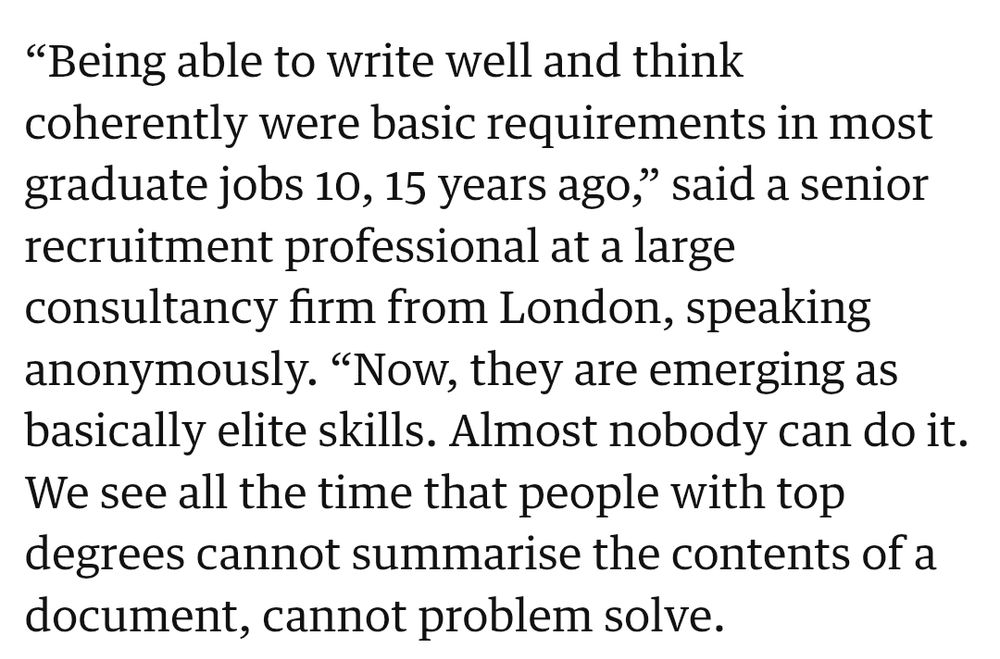

In @thebulwark.com, I share how to build a system that actually works: www.thebulwark.com/p/democrats-...

In @thebulwark.com, I share how to build a system that actually works: www.thebulwark.com/p/democrats-...
Medicare saves lives. But is it enough to save lives of the most vulnerable Americans? The study suggests no; Medicaid still matters. (1/11)
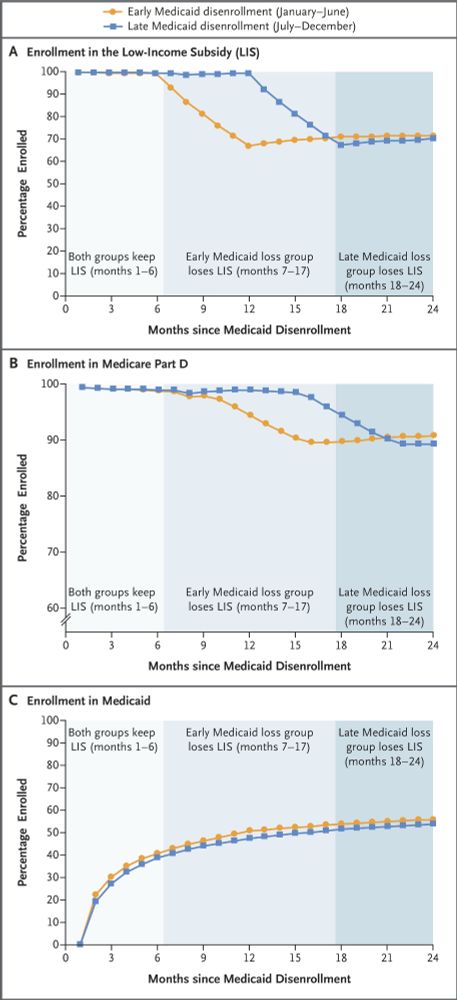
Medicare saves lives. But is it enough to save lives of the most vulnerable Americans? The study suggests no; Medicaid still matters. (1/11)
(And, yes, I know I could do better with reaching out to you, but leave that aside for the moment.)
Please don't ever think you're bothering your former mentors with requests to catch up. They are not a bother. They want to hear from you.
(And, yes, I know I could do better with reaching out to you, but leave that aside for the moment.)
Please don't ever think you're bothering your former mentors with requests to catch up. They are not a bother. They want to hear from you.
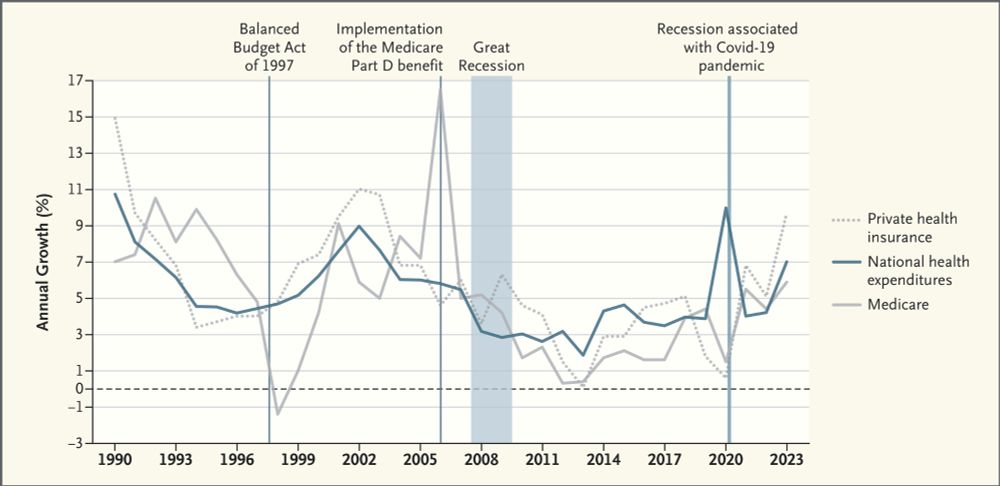
Medicaid managed care organizations' experiences with network adequacy
doi.org/10.1093/hasc...
#HAScholar
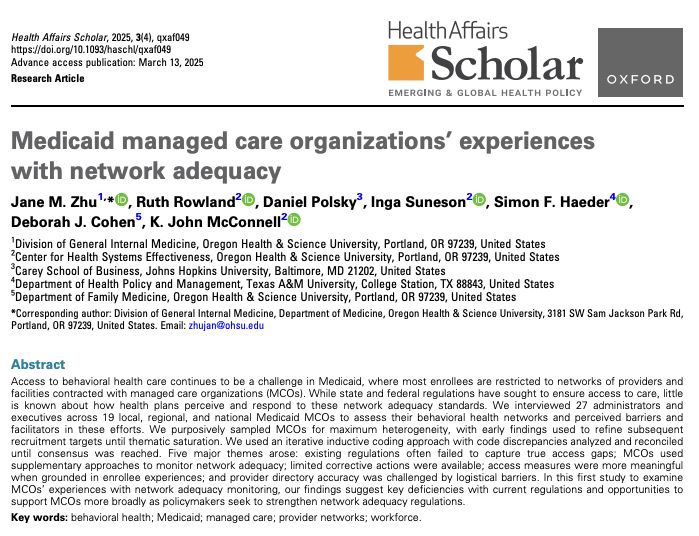
Medicaid managed care organizations' experiences with network adequacy
doi.org/10.1093/hasc...
#HAScholar

This indicates we need a strong social appetite for redistribution to justify that $ transfers involved. (1/2)
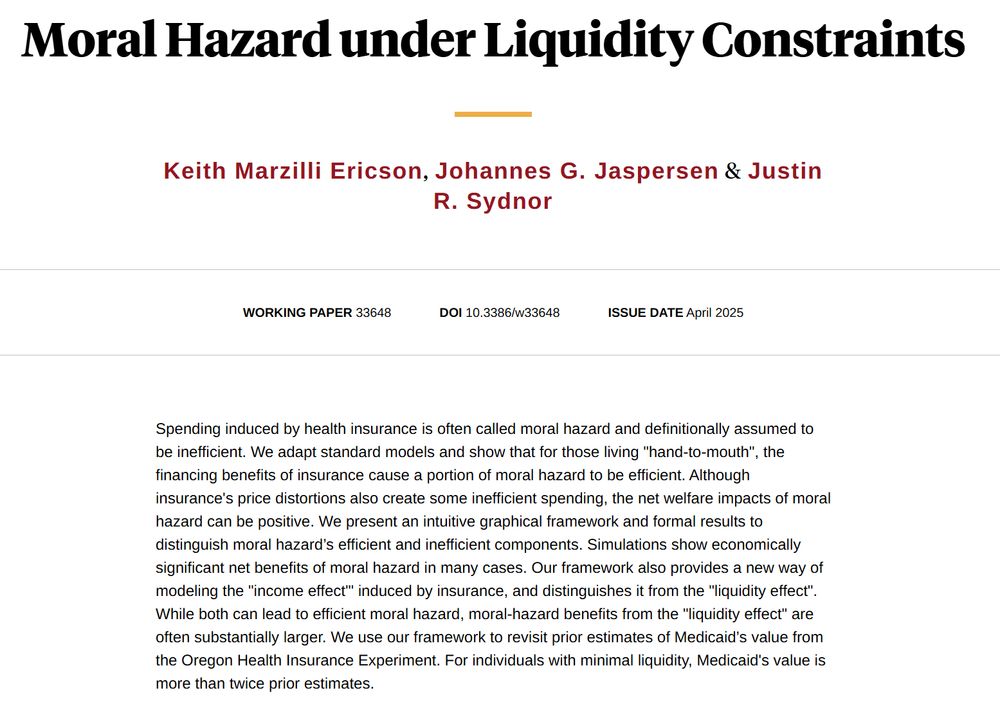
This indicates we need a strong social appetite for redistribution to justify that $ transfers involved. (1/2)

They systematically overestimate smaller %s and underestimate larger %s, including ENTIRELY NON-POLITICAL %s, such as the % of the population that owns an Apple product, has a passport, or has indoor plumbing
They systematically overestimate smaller %s and underestimate larger %s, including ENTIRELY NON-POLITICAL %s, such as the % of the population that owns an Apple product, has a passport, or has indoor plumbing
We explain & demonstrate why instrumental variable methods are essential for trials of medical interventions that fail to play out as intended
Check it: www.dropbox.com/scl/fi/lsnmm...
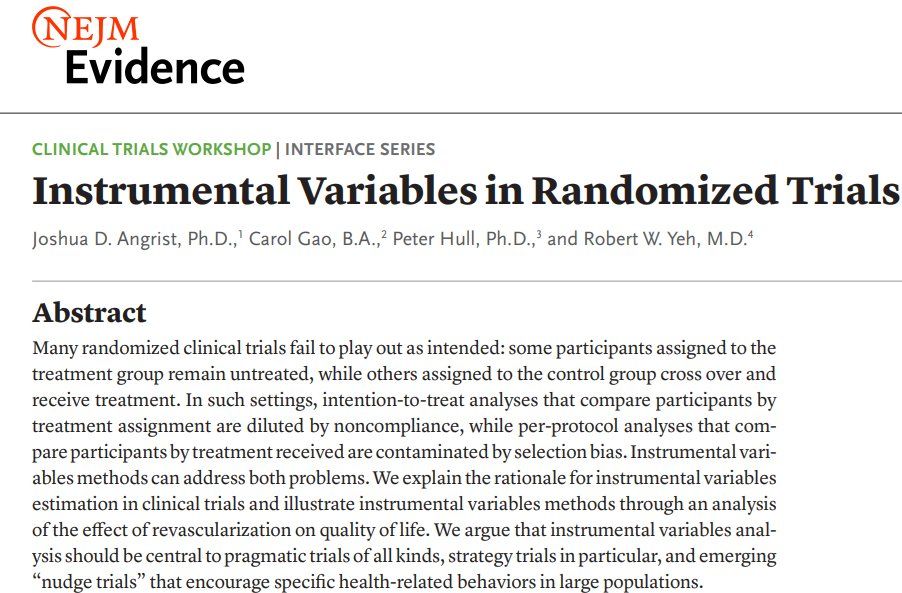
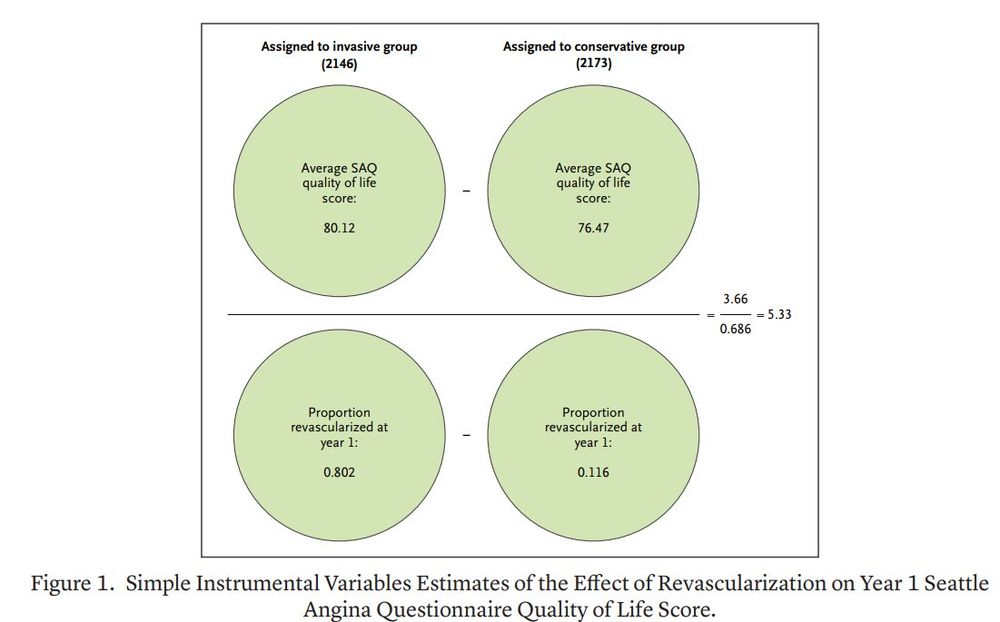
We explain & demonstrate why instrumental variable methods are essential for trials of medical interventions that fail to play out as intended
Check it: www.dropbox.com/scl/fi/lsnmm...
www.kff.org/policy-watch...

www.kff.org/policy-watch...


